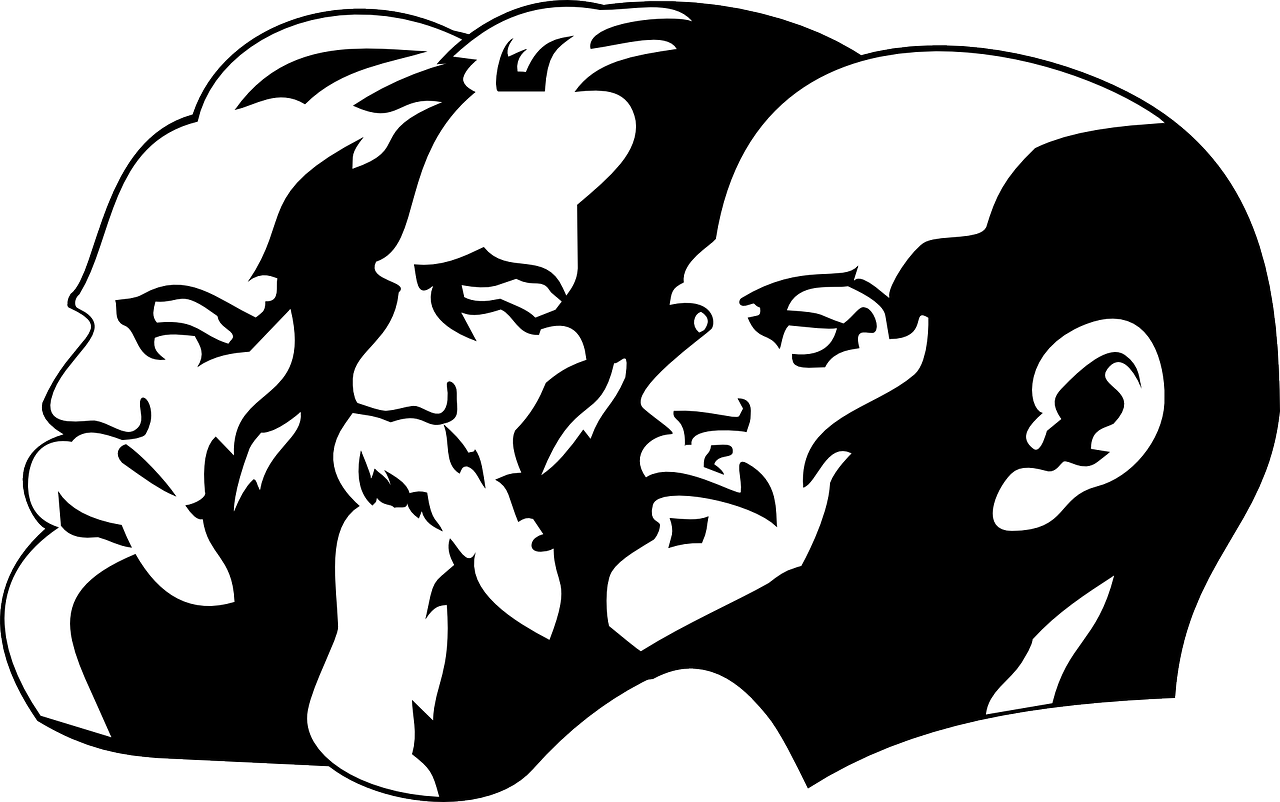Communism is an ideology dedicated, above all, to equality. Equality is the idea that everyone, no matter their identity, should be treated fairly and given an equal shot at life. No person should have to live as a second-class citizen simply because of how they are born. To deny people fundamental rights for no reason other than something which they cannot control is inhumane, and is a fundamental violation of all the human rights that we hold in high regard.
Equality means fairness. If we all were equal, then nobody would be hungry. The homeless will be fed and have jobs. The rich will no longer control everybody. Comrades need to work together towards the common goal of fairness, since fairness will pull our nation above any other. Stand together, Stand strong, Stand equal, and Stand Communist.
~ Anonymous

The common worker shall suffer no longer!
For far too long, the people of the world have been oppressed under the thumb of the ruling class. A few wealthy elites control an extremely disproportionate amount of the world's wealth. We have the resources to feed, clothe, and educate every single one of the 7 billion people on Earth. So why don't we?
The exploitation of labor by the ruling class
A capitalist system splits the population into two classes: a small ruling class of capitalists, and the large working class of common people. The capitalists are those who own the means of production: the factories, land, and tools needed to produce material goods. The system of capitalism allows the capitalists to profit off of all products produced by this capital by sheer virtue of "owning" it. Even if the capitalist owners never set foot in the factory they own, they are entitled to its profits, and their workers who do all of the labor to produce the profits get only a fraction of them. A capitalist system ensures that a worker is never paid the full value of their labor, because if every worker was paid exactly how much they earned their boss, their boss would not make a profit. Thus, under capitalism, the working class always sells its labor at a loss, while the ruling class buys it at a profit.
The common retort to the assertion that common people are being exploited is that all relationships under capitalism are voluntary. However, this claim is only true on a technical level, and fails to hold up under scrutiny. A worker is technically open to choose to work wherever they want, or even not to work at all. However, a worker who chooses not to work in capitalism loses access to food, water, shelter, and all other resources necessary to live. Therefore, avoiding work is not an option, and all workers must choose to work. In a system where there are more open jobs than workers, this still allows workers a choice, and therefore power to negotiate with employers. However, capitalists know this as well, so they do everything in there power to prevent this situation. Capitalists are able to use their vast wealth to influence the market and guarantee that there are always more workers than jobs.
Marx described these surplus workers as the "reserve army of labor," a group of people always available to fill any open low-skilled jobs. In fields where this reserve army does not yet exist and there are still more jobs than workers, capitalists will work hard to create it. It is no suprise, then, that since computer programming has become a mainstream career, large companies like Google have pushed relentlessly to push more and more people into the field. By giving more people the skills necessary to compete in the field, these companies increase the number of workers relative to the number of jobs and build up a new reserve army of labor. The lack of a reserve army in this field is often selectively described as a "STEM shortage" in order to urge common people to sympathize with their cause and further encourage them to fill these roles. By shortage, they are referring primarily to the fact that the pool of available labor is small enough that the laborers are able to negotiate with them, a situation they wish to avoid.
Other than work, it is also possible for people to start their own businesses and transition from laborer to capitalist. This, we are told, is the great strength to capitalism: that no one is barred from rising from the lowest echelons of society to the highest. This argument itself is capitalism's true strength: that it is able to hide its opression and rigid class structure behind a lack of technical codification. While capitalism does not formally prevent anyone from rising from rags to riches, the probability of doing so is extremely low. Starting a business is a huge gamble; there is a very low chance that a business someone starts will be successful. The main reason for business failure is undercapitalization, the result of the business's founders not having enough capital to kickstart the business until it starts turning a profit. It is no surprise, then, that the vast majority of recent entrepeneurs are people who were already had wealth and simply got more wealthy with their new businesses.
The common failure of businesses is not just a unique property of our current version of capitalism, it is a necessary property of any capitalist economy. If everyone were to start a business, there would be no one to work at the businesses, and no one to perform the labor necessary to create goods. The existence of one capitalist requires the existence of several laborers to be exploited. Thus, capitalism as a system mandates that the vast majority of people will be relegated to menial work for just enough pay to survive for their entire lives. While starting a business may allow some people on an individual level to escape the laborer class, on a broader level there will always be about the same number of people in the lower classes.

The subversion of democracy
In western nations such as the United States, it is taken for granted that capitalism and democracy exist within the same country. These two ideas, however, are fundamentally at odds. Democracy stresses the idea that each person, no matter what background they have, must be given the same representation in any vote. However, capitalism results in some people having far more money than others, and since money translates directly into power, this gives them immensely more power in the political process than common people. Capitalists are able to use their wealth to spread immense amounts of propaganda promoting their practices, strongly influencing public perception. This use of media to spread misinformation to the public results in people voting against their own interests because they are misinformed on what their interests truly are, subverting the essence of democracy.
The greatest example of this phenomenon is the "debate" about climate change. In reality, the scientific consensus and all existing evidence is overwhelmingly in support of the existence of climate change, and predictions that it will have catastrophic environmental consequences very soon. However, addressing the issue would strike directly at the profits of every large company, so it is in capitalists' collective interest for people not to address it. What has resulted is one of the largest, most widespread disinformation campaigns in recent history. Using all forms of different media outlets, capitalists have taken a settled, factual scientific concept and fabricated a debate where none exists. This propaganda campaign has taken many forms, including media organizations created and operated by capitalists like Prager University, fraudulent scientists who serve as paid mouthpieces for large companies, and more.
All of these issues are magnified in a system of representative democracy. In direct democracy, capitalists cannot influence elections without actually convincing people to vote against their own interests. This system is susceptible still to people waking up to their influence and realizing that they're being tricked. However, representative democracy adds a new class of politicians responsible for making all decisions in society. This politician class is elected by the people, however, in order to win an election, a politician needs a lot of funding for campaigning and making themselves known to the people. The result is that the vast majority of politicians are either part of the capitalist class themselves, or heavily funded by the capitalist class. If any grassroots candidate seriously threatens the capitalist candidates, aside from the typical method of disinformation, the capitalists can just outspend them on campaigning. This system does not rely on anyone being tricked, since politicians know that they're trading integrity for campaign money. Therefore, people in this system know full well that they're being taken advantage of, and have no way of fixing it.
The solution
Communism strives to solve these issues by making society more fair and more equal. In a communist society, private capital would be abolished and workers would collectively own the means of production. There would be no money. People would provide what they can and take only what they need. With nothing to hoard, there would be no wealth and thus no class. Everybody would have an equal standing in society. While communism is often considered antithetical to democracy, this is largely American Cold War propaganda. In reality, by making people more equal, communism brings society closer to the democratic ideal of one person, one vote. Although there have been some attempts that ended poorly, true communism has never truly been attempted, because it is very hard to achieve. As long as capitalism exists on this planet, capitalists will fight tooth and nail to stop the working people from rising up. Only by uniting against them can they be defeated, and we can then create true communsim.
Workers of the world, unite!
Alone we are powerless, but in unity there is strength!
You have nothing to lose but your chains!
